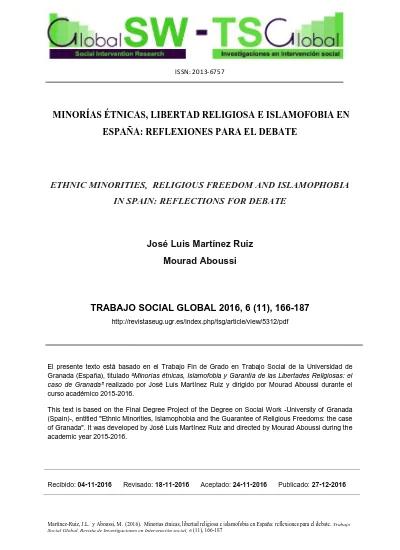Is the immersion in the sea of a lifeless body contemplated in the religious tradition of Muslims?
Islam is a possible religion, that is, any prescription is accompanied by "if possible".Consequently, if the body has fallen into the sea and is not found, if there is a risk of disease for the living or if the body cannot be preserved until the burial on the ground, there is the legitimate possibility that the sea becomes the graveof the deceased.The beliefs associated with the grave in this case extend to the sea as a spiritual tomb.
However, I understand that when Muslims say that the immersion of Bin Laden's body in the sea does not conform to religious prescriptions, they refer to the fact that, in the face of the real possibility of having buried it on land, American leaders have opted forsubmerge it in the sea.This contradicts the Muslim prescription to bury their dead on the ground whenever possible.
What is the perception of death in Islam?
Islam is a transcendent religion.As in the other revealed religions, such as Judaism and Christianity, in Islam death is a step towards eternal life, for which the believer must prepare.
In relation to this issue there is a lot of journalistic literature about suicidal jihadists when justifying their actions.Many times terms are confused: one thing is the idea of death from the religious point of view, and another is the use of said concept to justify certain actions.For believing Muslims, death is, as in other religions, a step towards eternal life - which is different for each religion -.
Are there differences in Islamic funeral rituals from different countries?

The practical basis is common for all Muslims who want to be buried according to their religion, although later, in each country, region or even in each tradition some things or other are added.For example, in some places the funeral courtship is accompanied by plañideras while in other territories this practice is very bad view.It depends on local traditions.
What are the rituals of this religious tradition?
In a very schematic way, they consist of attending the dying man, provided that it is possible, helping him to have a good death.Once the death is produced, the ideal is to bury it in the first 24 hours.
For this, the following procedure must.Then it is wrapped in a shroud (white fabric without seams, similar to that used to make the pilgrimage to mecca) and, without touching the meat of the deceased again, it is buried directly on land, without coffin and oriented towards Mecca.
The washing and purification procedure must do so a Muslim person of the same sex as the deceased, and the burial proper to the men.Once buried in the cemetery there are a series of key days in which the tomb is visited: the third, the ninth and 40 days.This is the usual and common in all countries.
@Un_godlypodcast i've got soy exams i can 'ultimate articate a single one 😂 but that's it exactly- astrol ... https: // t.CO/O8ZPptyrhq
— Angie BoPeepers Tue Jul 20 02:22:08 +0000 2021
In the case of Spain, how do you act before the death of a person of Islamic religion?
The situation is very complex since in each autonomous community we find disparate situations.The part of the ritual referring to the washing and bunch of the body is similar in all autonomous communities, the differences reside in the possibility of burial or repatriation of the body in the case of immigrants.
The origin of the person is a very important element since when the deceased is Hispanomusulman, his family, logically, wants him to be buried in Spain;While if immigrant families usually opt for the repatriation of the bodies - except that the deceased has arranged something else - and when the body reaches the country of destination, the ritual continues there.In the case of babies or premature deaths, it is usual to be buried in Spain.
And are the rites respected?
It must be said in the last 15 years there has been a very significant evolution.The ignorance has gone from where the presence of Muslims is linked to immigration, and the learning of the ritual where Muslims are Spanish of origin, to the current situation, in which there are funeral home that offer specific services to Muslims and even, in the case of Barcelona, there is a tank for Muslims.
Muslim cemeteries in Spain
In Spain, at present, the process of washing and purification of the bodies of the deceased can be carried out in the hospital, in the funeral home or in the spaces that some Muslim cemeteries have enabled to this end.
In this sense, in the La Rauda (Granada) Islamic cemetery, there is a space arranged to proceed to ritual washing and purification, inside the cemetery, and from it it leads directly to the deceased to the tomb already prepared.
At this time the number of Muslim cemeteries is limited and there are great differences between autonomous communities.Andalusia is one of the regions with the greatest number of confessional spaces of this type, in total ten between audiences and private.In addition, in this community the legislation allows burial directly on the ground, without coffin.
Article 2.5 of Law 26/1992 of November 10 of the Spanish State regulates the situation of Muslim cemeteries in Spain.
Bibliographic reference:
Tarrés, sun."Funeral rites in Islam: praxis among Muslims in Seville".Zainak, 28: 423-440, 2006.


